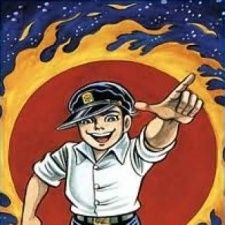|
If you liked
Rurouni Kenshin: Meiji Kenkaku Romantan
|
...then you might like
Hidamari no Ki
|
Although they have little in common in their tone, pacing or focus, they have a specific aspect in common: both are intimately related with the Meiji Restoriation. Rurouni Kenshin deals with the consequences of the Restoration 10 years after it happened. Hidamari no Ki is set during the late 1850's and early 60's, giving great historical insights on the motives for why the Restoration happened.
|
If you liked
Fullmetal Alchemist
|
...then you might like
Shingeki no Kyojin
|
SNK: a threat that later in the story is shown to be not what it initially seemed FMA: a mysterious story that involves the foundation of a country Both have the presence of a huge conspiracy to decept people. And both are great hahaha
|
If you liked
Dragon Ball
|
...then you might like
JoJo no Kimyou na Bouken Part 3: Stardust Crusaders
|
A lot of fights with bizarre and unusual enemies (in this case I'm referring to the first volumes of Dragon Ball where Goku is a kid/teenager). A lot of adventures through several places (the quest for the dragon balls makes the main characters go to many different locations, and Stardust Crusaders has a journey almost half the circumference of the Earth, passing by many different countries) Both also create a deep sensation of not being from our reality (people die and basically nothing happens, the authorities usually don't give a damn - I find it funny in a way lol)
|
If you liked
Mushishi
|
...then you might like
Vagabond
|
Although the concepts and the motifs are very different, both gave me a strange feeling of melancholy and reflection. Maybe because in both mangas the art is focused on beautiful depictions of natural sights, and the two stories deal with old Japanese traditions
|
If you liked
Monster
|
...then you might like
MW
|
MW, just like a lot of other works from the unprecedented genius Osamu Tezuka, has a dark approach on human psyche. Monster does the same, but this approach is made in a lot more characters, allowing the reader to have more points of view in human condition. And I can tell you that the concept of Monster is clearly based on MW's; the background is pretty much the same, and the motifs are similar. Urasawa is acknowledged to be a big Tezuka fan, so it's not a surprise.
|
If you liked
20th Century Boys
|
...then you might like
Loose Senki: Old Boy
|
I'm certain Urasawa vaguely based his masterpiece 20th Century Boys in Oldboy. At least the primal concept: in order to find out who his enemy is and why he hates him so much, the protagonist has to look deep into his child memories. Although Oldboy is not a political sci-fi thriller with huge proportions, like 20th CB, it also gives you the same feeling of eagerness to discover the main mystery of the story. The kind of tension that makes you reading chapters one after the other almost non-stop.
|
If you liked
Rurouni Kenshin: Meiji Kenkaku Romantan
|
...then you might like
Vagabond
|
If you have read Rurouni Kenshin as a teenager (and loved it, just like me), and now you want something a little more realistic, mature and thought-provoking - in other words, grown-up - Vagabond is an excellent option.
|
If you liked
Adolf ni Tsugu
|
...then you might like
Hadashi no Gen
|
Two great works of historical fiction taking place in the same period of History - the World War II. One is about the atomic bomb of Hiroshima and its effects, a sublime autobiography of the survivor. The other is about a trama involving Hitler, running through the entire period of the WW II.
|
If you liked
Monster
|
...then you might like
Death Note
|
Monster, just like Death Note, is a thriller about a man pursuing a serial killer, and both villains (Johan Liebert and Yagami Light) are straight-up geniuses. The point of view is different - one is from the hero and the other from the villain. But both make a good work talking about ethics and morality.















